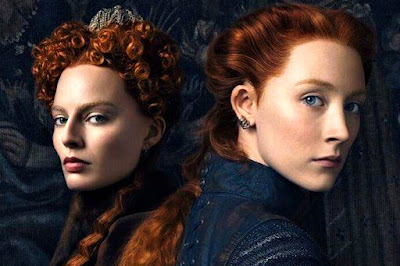Boy, there is so much that I could say about this movie, that I really don't know where to start. Halloween is the 2018 sequel to Halloween, the 1978 original. Not to be confused with the seven other sequels of the two Rob Zombie rebooted Halloween films. The 2018 Halloween is a direct sequel and thus retcons the continuity of all films in the franchise apart from the original.
Production-wise this latest instalment is very high quality. The cinematography has some great flow, and the lighting is well utilised (or not utilised, as necessary). It has the look of a big budget film, and that is because, for a slasher film, it does. The original film had a budget of $325,000--which even taking inflation into consideration--is less than $1.3 million dollars today. 2018's budget ran upwards of $10-15 million. A whole order of magnitude higher. So there is the real question that needs to be asked; was that money well utilised?
The film plays off on the fact that it is coming out 40 years after the original, and is referenced during some scenes. They have brought back Jamie Lee Curtis to reprise her role as Laurie Strode, the sole survivor of Michael Myers' 1978 spree, and even bring back Nick Castle to reprise his role as "The Shape" during a scene. Otherwise, taking place 40 years after the original, we have an all-new younger cast (as well as Will Patton, who plays Sheriff Deputy Frank Hawkins, a character that is said to have arrested Myers' 40 years ago, yet was not present in the original film).
The premise of the film is simply Laurie Strode, who has spent her life training, preparing, and waiting for his inevitable escape, attempting to take Michael Myers head on.
The opening scenes of the film are a curious choice; showing Myers in his incarceration, but purposefully concealing most of his face, while still showing that "the shape" is now an old man. Stylistically, I don't understand why they did this. Michael Myers was a character that has always seemed human but had the strength and drive of something more supernatural. That is what drives the tension and fear. The fact that he is an unstoppable force. The act of showing him unmasked as an ageing man--especially one that looks like Tobin Bell's John Kramer from the Saw franchise--loses so much of that power that the character had, and suddenly your audience is no longer afraid of him.
The film really struggles to decide on a direction and ends up coming off unfocused and clumsily written. Myers' character himself seems to have lost a lot of the drive that he had in the original, moving through the cast of characters running into plot device after plot device. With no sense of direction, the showdown that we are waiting for doesn't feel earned when it happens; it simply feels like luck.
This latest iteration tries to incorporate comedy and cheap jump scares into the storyline, and it is really poorly done. Horror and comedy are the hardest things to combine, with a successful horror relying on the viewer holding tension, yet the aim of comedic elements is to release that same tension. In this case, they contradict one another, jumping from one to the other, removing any suspense that the scenes may have held. The editing was well done for the most part. There were some great scenes done in low light that really managed to get the heart racing, but then there would be a lot of shots where you would just wander around following Myers character around, and it felt out of place and unnecessary. Myers strength lies in being a faint presence in the background. Having his position not known.
Jamie Lee Curtis is back and her character has had a drastic change since the original. With some PTSD, she comes across like she has a borderline personality disorder, switching from a hardy, grizzled, experienced survivor, to a flighty, incompetent victim. It's as if someone dressed up as Terminator's Sarah Connor then got caught in the lie. The paranoia and seclusion of the character was a nice touch in the development but was poorly written into the script. This is made worse by how little screentime Curtis actually ends up getting (far too much time is spent following around kids who had no relevance to the plot).
Without going too much into the plot, the 2018 Halloween is a mixed bag. It pays homage to and even lifts entire scenes from the sequels that it retconned out of continuity. It gives us a visually spectacular film, with some great scenes showing what Myers does best. But it also ventures too much into the comedic side and spends a little too much time playing with the gore element to a point that it feels uncharacteristic.
It's quite a fun watch if you can handle your gore, and if you can go into the film, free of expectations; it is a slasher flick after all. But be aware that the build-up to the final act is cumbersome and clunky, and the climax is ultimately not all that satisfying. A good sequel. But not anything great.
Originally posted to: http://djin.nz/Kr8161
Originally posted to: http://djin.nz/Kr8161
















